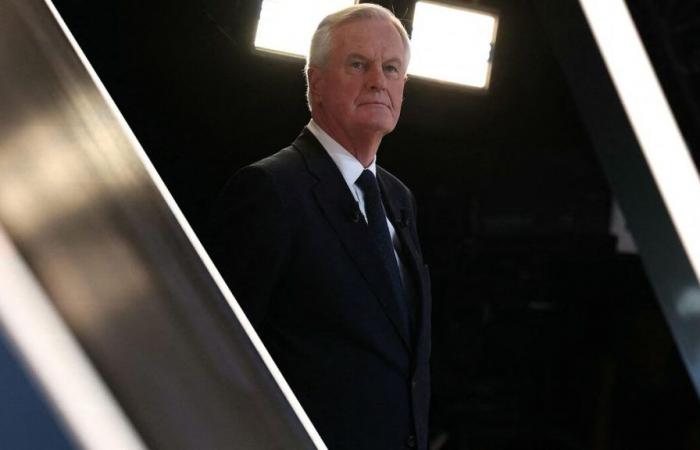
The tax increases mentioned for several weeks by Michel Barnier are becoming clearer. Some “300 companies” will be affected by tax increases, for “a year or two”, said Michel Barnier on France 2 on Thursday, refuting any “fiscal shock” as some accuse, including his macronie partners. .
“We are going to ask for an effort from the largest companies which make more than 1 billion (euros of turnover) and a temporary exceptional effort (…). This represents 300 companies,” explained the Prime Minister. The “time” of this additional contribution “will be fixed in the law”, and “it will be one year and perhaps two years”, he specified.
During his general policy speech, the head of government had already confirmed that large companies, that is to say those which “make significant profits”, but also the “most fortunate French people” will be put to greater use as part of the 2025 budget to straighten out the country’s accounts.
2 billion euros in savings
France currently has a debt of 3,228 billion euros. And its deficit, which was expected to reach 5% this year, will exceed 6% without corrective measures.
According to Michel Barnier, these tax increases will “recover 2 billion euros”. “The effort that we are going to ask” of “the most fortunate people” will “recover 2 billion euros”, Prime Minister Michel Barnier estimated on France 2 on Thursday.
“The effort that we are going to ask for is based on a tax system for very high incomes which was put in place by François Fillon and Nicolas Sarkozy a few years ago. We will add something to this system for the exceptional and temporary participation of the most fortunate people,” added the head of government.
Another measure aimed at saving money: Michel Barnier’s government intends to “merge public services” and “probably not replace all civil servants” in order to reduce public spending, the Prime Minister explained Thursday evening on France 2. We are going to merge public services. We will probably not replace all civil servants when they are not in direct contact with citizens, all civil servants who retire,” explained Michel Barnier.
“Single social allowance”
Prime Minister Michel Barnier also announced his intention to launch a “single social allowance” project “for next year”. The objective of this measure will be “so that at the end of this work, it pays more to work than not to work”, he declared, specifying that this “project will take a little time “.
Michel Barnier considered that “work must pay more than the addition of benefits”. But also that it was necessary to “debureaucratize” the allowances and “perhaps sometimes increase some of them”, such as that intended for “people with disabilities”. The Prime Minister added that he had not “found any concrete proposals on this subject” of the single allocation.
This project is one of those presented on Wednesday by Laurent Wauquiez, president of the Republican Right deputies (ex-LR). With his troops, he recommends a “single social allowance capped” at “70% of the minimum wage”, intended according to him to fight against “welfare”.
“Pause on standards”
Prime Minister Michel Barnier also promised to “take a break from standards” to “encourage” farmers affected by the crises. “These farmers who are affected by health crises and poor harvests deserve to be encouraged. They are fed up. Fed up with constraints, rules and controls. So we are going to take a break on the standards,” he declared on France 2.
“They work a lot, in a vital way, to sustain life, to feed the French with healthy, balanced, diversified, traceable food,” underlined Michel Barnier who was Minister of Agriculture from 2007 to 2009 under the presidency of Nicolas Sarkozy.
The Prime Minister must go on Friday to the Livestock Summit in Cournon-d’Auvergne (Puy-de-Dôme), to a profession whose herds are affected by several diseases for his second trip to the provinces after the congress of firefighters in Mâcon on Saturday.
He also announced that his government would “resume without delay” the draft orientation law for agricultural sovereignty, which had been modified after the sector’s demonstrations in early 2024. But its examination had been interrupted by the dissolution. This bill places agriculture as a major general interest, sets up a one-stop shop for the establishment of new farmers, and facilitates the construction of livestock buildings or water reserves.
“I’m the one who sets the line”
Finally, on immigration, Michel Barnier wanted to reaffirm his position. “It’s me who sets the line” on immigration, and “there will be rigorous measures to control it,” he assured, after controversial remarks from Interior Minister Bruno Retailleau, particularly on the rule of law.
The Prime Minister seemed to rule out the idea of a new law on immigration, as demanded by the leader of the National Rally deputies Marine Le Pen. “I’m not going to announce laws in advance,” he said, but “maybe there will be changes to the (current) law if necessary.” “I am not going to get into major ideological debates.”





